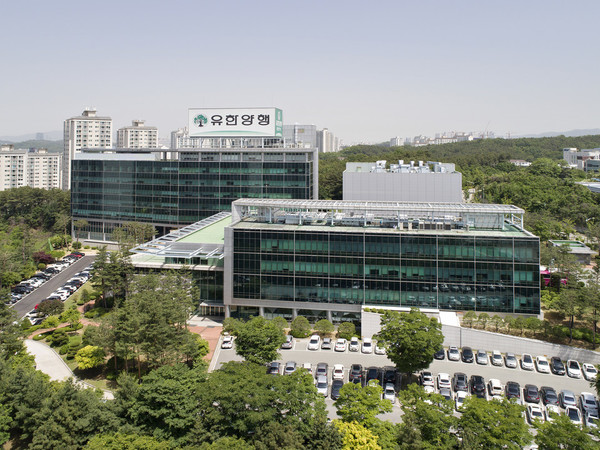A new gastrointestinal (GI) disorder treatment, developed by Yuhan Corp. and licensed out to a U.S. biotech firm, won the FDA approval for a Phase 2a trial.
At the time of the licensing agreement, Yuhan received the U.S. partner company’s common stock in an upfront payment. The market is paying attention to whether Yuhan can succeed both in new drug development and return on investment.

Yuhan said its U.S. partner Processa Pharmaceuticals obtained the FDA nod to conduct a phase 2a trial of PCS12852, a drug candidate for GI motility disorders. Processa applied in September.
Yuhan licensed out PCS12852, formally known as YH12852, to Processa in August 2020, after completing pre-clinical, toxicity, and phase 1 trials in Korea. It is a selective agonist for the 5-hydroxytryptamine 4 (5-HT4) receptor, which plays an important role in intestinal motility and sensory control.
Under the licensing agreement with Yuhan, Processa holds an exclusive license to develop, manufacture, and commercialize PCS12852 globally, excluding Korea.
According to the website of Processa, the company plans to enroll patients in the first half of 2022 and derive results from the phase 2a study in the second half of 2022 or the first half of 2023.
The phase 2a study will evaluate the drug’s safety, dose-specific pharmacokinetics, and efficacy in 24 patients with moderate to severe gastroparesis. The trial will be multi-center, randomized, and double-blind.
The trial plan is different from what industry watchers had expected. They had anticipated the new drug candidate might target postoperative intestinal obstruction or opioid-induced constipation.
Yuhan explained that gastroparesis is an unmet medical need, with about 4 percent of the U.S. population suffering from the disease every year.
If PCS12852 is commercialized successfully, Yuhan could achieve significant milestones and earn royalties, Yuhan said.
Yuhan’s investment in Processa is another reason the Phase 2a trial draws the stock market’s attention.
Last year, when Yuhan signed a $410.5 million licensing-out deal with Processa, Yuhan received $2 million common stock of Processa in a non-refundable upfront payment.
Also, Yuhan is eligible to receive development, regulatory, and commercial milestone payments, including $2.5 million common stock.
With the new drug development progressing, a higher corporate value of Processa will push up Yuhan’s value of its holdings in Process.
Listed on Nasdaq in October last year, Processa’s shares marked $8.19 at 4 p.m. Tuesday, local time. The price was up by 107.34 percent from the $3.95 marked on Oct. 2 last year.
“We confirmed PCS12852’s excellent intestinal motility improvement without cardiovascular side effects through local pre-clinical, toxicity, and phase 1 studies. So, we expect good results from the U.S. study,” an official at Yuhan said.

